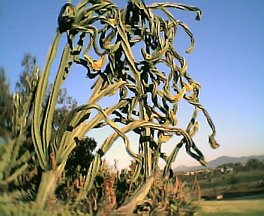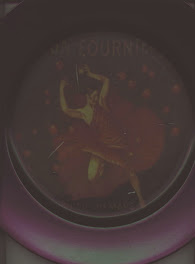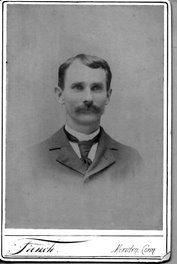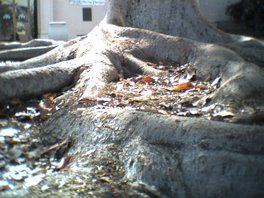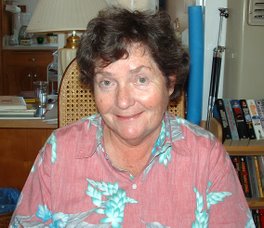I own and love each of the dictionaries reviewed below:
From www.jeffprucher.com
"The Publicity Machine has already begun its work
Language Hat listed BNW as one of his favorite books of 2006, before it was even published, which is, if not a first, surely pretty unusual, and quite a high compliment. (No, he doesn't, to my knowledge, have a time machine but he was the copyreader on Brave New World...)"
posted by jeff @ March 06, 2007 12:06 AM
"The Millions (A Blog About Books)
December 10, 2006
A Year in Reading: Languagehat
Languagehat is a deep repository of interesting linguistic tidbits. An essential blog for those with an interest in language, Languagehat is also engaging enough to make regulars out of a monolingual like me. "Hat" was nice enough to share some of his favorite books from this year:
Jeff Prucher's Brave New Words: The Oxford Dictionary of Science Fiction isn't even out yet, but as a copyeditor I've had the opportunity to read the whole thing, and it's definitely one of my favorite books of the year. Yes, I got paid money to read it, but anyone who knows me at all knows that lexicography and science fiction are two of my favorite things, and to have them combined in a glorious package is a thrill that has nothing to do with a paycheck. If someone had told me forty years ago that the people who put out the OED would one day apply their scholarly talents to my favorite field, I would have been even more impatient for the future to arrive. It's got etymologies, citations going back to the Renaissance and right up to 2006, fan terms going back to the purple-stained days of hectographs... Anyone who loves both words and sf will love this book. FIAWOL (= Fandom Is a Way of Life)!
Grant Barrett's The Official Dictionary of Unofficial English is another amazing lexicographical performance that does something that would have been impossible until the advent of the Internet: applies the full panoply of scholarly resources to new or marginal words that do not appear in other dictionaries. Grant's website Double-Tongued Word Wrester has been tracking such words since 2004, and he's put the best of them into this book. One of my favorites is vuzvuz 'a derogatory name for an Ashkenazic Jew... This term is usually used within the religion, especially by Sephardic Jews.' A few entries in succession: AMW "a (pretty) woman whose career derives in some way from her appearance' (from Actress, Model, Whatever); area boy 'a hoodlum or street thug' (a Nigerian term); armchair pilot 'a person who talks about, studies, or directs airplane flying, but is not qualified to, or does not, handle the controls' (a military term), and Asbo 'a court order designed to curtail unwanted public behavior' (UK, from "anti-social behaviour order"). I can splash around in it for hours."
Some of my favorites from Unofficial English (this is Irene speaking again) are: sleeve v. to decorate an arm with tattoos; and Bangalored adj. having been relocated to India; having lost business or employment due to such a relocation.
Unofficial English has lots of neologisms, that is, newly coined words,and existing words applied to new circumstances.
Brave New Words presents terms used in science fiction, fantasy or horror genres for at least ten years, or in the literary criticism or fandom thereof. Slideway n. a moving sidewalk or walkway is cited from 1942. How long ago did they arrive in our airplane terminals?
Just Learning

Kitchen Studio
Monday, April 30, 2007
Thursday, April 26, 2007
Bees Lose Their Way
Many worker bees have lost their sense of direction, and are not returning to their hives with nectar. This week it is front page news. The bees that normally pollinate our crops have disappeared in such numbers that twenty-five percent of commercially kept hives in the United States have collapsed. This is doomsday count news. What do we eat if plants can't grow? Maybe farmers could blow pollen over the fields by machine. Bees bring pollen on their legs into the deep cups where nectar forms. Can you see millions of people in sunhats using tweezers to fertilize plants one flower at a time?
Some blame radio wave towers for cell phones. Others point to pesticides banned in Europe, which permeate the plants and are ingested by insects. These pesticides contain high fructose corn syrup, which has little nutritional value and in the human body goes straight to fat. I inspect labels carefully to avoid this form of sweetening. High fructose corn syrup is also used in the travel food fed to bees when their hives are loaded into huge semis, and their owners drive around looking for pollination work. Who knew? I didn't know there were itinerant pollinators. I never thought about needing industrial numbers of beehives to pollinate acres and miles of crops.
The article I read said that bee die-offs have occurred before, but this one is a lot bigger. I guess I'm assuming that "they," the Department of Agriculture, I suppose, will find out what's harming the bees and do something about it. Or perhaps I should assume that the authorities knew very well what might happen and were pressured into taking a chance that something profitable could be allowed and might not become a threat to our food supply. As for our nutrition supply, even a lot of fresh produce lacks the nutrition it used to have.
Save the bees.
Some blame radio wave towers for cell phones. Others point to pesticides banned in Europe, which permeate the plants and are ingested by insects. These pesticides contain high fructose corn syrup, which has little nutritional value and in the human body goes straight to fat. I inspect labels carefully to avoid this form of sweetening. High fructose corn syrup is also used in the travel food fed to bees when their hives are loaded into huge semis, and their owners drive around looking for pollination work. Who knew? I didn't know there were itinerant pollinators. I never thought about needing industrial numbers of beehives to pollinate acres and miles of crops.
The article I read said that bee die-offs have occurred before, but this one is a lot bigger. I guess I'm assuming that "they," the Department of Agriculture, I suppose, will find out what's harming the bees and do something about it. Or perhaps I should assume that the authorities knew very well what might happen and were pressured into taking a chance that something profitable could be allowed and might not become a threat to our food supply. As for our nutrition supply, even a lot of fresh produce lacks the nutrition it used to have.
Save the bees.
Saturday, April 21, 2007
Enclosure and Expansion
"Encounters with the Invisible: Unseen Illness, Controversy, and Chronic Fatigue Syndrome," by Dorothy Wall, Southern Methodist University Press, Dallas, 2005.
"I'm restless, caught in a kind of family quarrel between my body's need for a calm, gestational enclosure and the self's need for stimulation, engagement, expansion." pp 80-81.
This blog gives an outlet for expansion.
"I'm restless, caught in a kind of family quarrel between my body's need for a calm, gestational enclosure and the self's need for stimulation, engagement, expansion." pp 80-81.
This blog gives an outlet for expansion.
Wednesday, April 18, 2007
Could It Have Been Prevented?
The young man who killed himself and so many of his fellows at Virginia Tech this week had been sent for psychiatric evaluation several times during his almost four years at the school, according to the head of the school's counseling service. At least twice, he had been labeled a danger to himself and others.
He wouldn't accept counseling, and you can't make him.
He did not violate the school's code of behavior, according to the dean. Two women students complained to the dean about letters Cho sent them. Apparently that blew over. He didn't commit any crimes. Although it's reported that some students were so upset by him that they dropped out of classes if he was also enrolled, you can't expel someone for being weird. If you could even define that. Some students were reportedly afraid of him. But he didn't step over the line in behavior.
He was due to graduate in a few weeks. Apparently he kept up his marks.
His writings for his English classes often described violence, murder, suicide. So did the writings of his classmates. English teachers teach writing, and they expect their students to grapple with the conditions of society. Cho was a Korean-American, living here since the age of eight, and educated here entirely.
Can a student be expelled for his thoughts, for being a loner, for being unpopular, for flat affect, for mental ill health? Not in the absence of behaviors that meet certain criteria. Can a person be incarcerated or committed because he might someday hurt himself or others? Not in the absence of behaviors that meet certain criteria.
Interventions are often made by schools, family and friends to convince a troubled person that he or she needs help. Many people do accept help. Others may drop out of the school, may stay out of the way of authorities. They may or may not fashion lives of happiness and work.
I want to believe that this terrible thing could have been prevented. Our nation will be analyzing the circumstances for years, along with similar horrors, to try to prevent future slaughter. In the past, society has sometimes multiplied horror in the effort to prevent it, by means such as involuntary sterilization, castration, lobotomy, internment camps, and prisons that increase crime. I hope at least one good thing can come out of this.
The governor of Virginia says it is time now to be with the survivors in grief.
In sorrow.
He wouldn't accept counseling, and you can't make him.
He did not violate the school's code of behavior, according to the dean. Two women students complained to the dean about letters Cho sent them. Apparently that blew over. He didn't commit any crimes. Although it's reported that some students were so upset by him that they dropped out of classes if he was also enrolled, you can't expel someone for being weird. If you could even define that. Some students were reportedly afraid of him. But he didn't step over the line in behavior.
He was due to graduate in a few weeks. Apparently he kept up his marks.
His writings for his English classes often described violence, murder, suicide. So did the writings of his classmates. English teachers teach writing, and they expect their students to grapple with the conditions of society. Cho was a Korean-American, living here since the age of eight, and educated here entirely.
Can a student be expelled for his thoughts, for being a loner, for being unpopular, for flat affect, for mental ill health? Not in the absence of behaviors that meet certain criteria. Can a person be incarcerated or committed because he might someday hurt himself or others? Not in the absence of behaviors that meet certain criteria.
Interventions are often made by schools, family and friends to convince a troubled person that he or she needs help. Many people do accept help. Others may drop out of the school, may stay out of the way of authorities. They may or may not fashion lives of happiness and work.
I want to believe that this terrible thing could have been prevented. Our nation will be analyzing the circumstances for years, along with similar horrors, to try to prevent future slaughter. In the past, society has sometimes multiplied horror in the effort to prevent it, by means such as involuntary sterilization, castration, lobotomy, internment camps, and prisons that increase crime. I hope at least one good thing can come out of this.
The governor of Virginia says it is time now to be with the survivors in grief.
In sorrow.
Saturday, April 14, 2007
Brave New Words
"Brave New Words: The Oxford Dictionary of Science Fiction," edited by Jeff Prucher, Introduction by Gene Wolfe. Oxford University Press 2007. It arrived today!
Yes, the first thing I did was to look for my name. There it is, among a couple of hundred science fiction writers, critics, fans, and word obsessed nobodies.
How I enjoyed taking part in this open project. I bought a couple of hundred science fiction paperbacks and magazines from thrift stores over the course of two years. I sent in citations for terms that were sought and also sent in suggestions for terms to research. One of my suggestions was "disaster novel," which I found in J.J. Pierce, "Great Themes of Science Fiction 143," from the San Diego Library. Jeff was dubious about posting it, but soon had cites from several more sources.
My contribution to "post-apocalypse," and several other cites, came from B.Searles et al., "Readers' Guide to Science Fiction," 1979, which I found as a battered, brown-paged old paperback for 35 cents at a favorite thrift shop. Ah the thrill of the chase, ah the joy of an intellectual pursuit that cost mostly time, not a lot of money.
Sending and discussing cites involved e-conversation with Jeff Prucher and Malcolm Farmer, two bright, enthusiastic lexiphiles.
I started in the love of words, and their etymologies, as a small child. I received the greatest impetus at Cathedral High, or Archbishop Hughes Memorial High School. In 1955-1958, Jeannette Doronzo, Veronica Mezey, Rosa Lopez and I competed with city-wide teams in contests of Latin translation, and also in contests on the Latin basis of many words in English. We had an inspiring, exacting coach, a Dominican nun whose name I can't believe I could ever have forgotten. Our school was mostly run by Sisters of Charity.
I love words for themselves, for communication, for helping to express emotion and meaning, even though we can only approximate such things. I also love their histories, and the changes thay have gone through. When I studied preaching, I loved heuristics, the study of interpretation, especially following histories of how certain bible passages were interpreted differently at different times in the same cultures, and how other cultures interpreted them at the same times. I barely scratched the surface.
Recommendation: Find a copy of "The Women's Bible," edited by Elizabeth Cady Stanton, and read Genesis.
Oh, frabjous day, Calloo, Callay,
"Brave New Words," has won the day.
Yes, the first thing I did was to look for my name. There it is, among a couple of hundred science fiction writers, critics, fans, and word obsessed nobodies.
How I enjoyed taking part in this open project. I bought a couple of hundred science fiction paperbacks and magazines from thrift stores over the course of two years. I sent in citations for terms that were sought and also sent in suggestions for terms to research. One of my suggestions was "disaster novel," which I found in J.J. Pierce, "Great Themes of Science Fiction 143," from the San Diego Library. Jeff was dubious about posting it, but soon had cites from several more sources.
My contribution to "post-apocalypse," and several other cites, came from B.Searles et al., "Readers' Guide to Science Fiction," 1979, which I found as a battered, brown-paged old paperback for 35 cents at a favorite thrift shop. Ah the thrill of the chase, ah the joy of an intellectual pursuit that cost mostly time, not a lot of money.
Sending and discussing cites involved e-conversation with Jeff Prucher and Malcolm Farmer, two bright, enthusiastic lexiphiles.
I started in the love of words, and their etymologies, as a small child. I received the greatest impetus at Cathedral High, or Archbishop Hughes Memorial High School. In 1955-1958, Jeannette Doronzo, Veronica Mezey, Rosa Lopez and I competed with city-wide teams in contests of Latin translation, and also in contests on the Latin basis of many words in English. We had an inspiring, exacting coach, a Dominican nun whose name I can't believe I could ever have forgotten. Our school was mostly run by Sisters of Charity.
I love words for themselves, for communication, for helping to express emotion and meaning, even though we can only approximate such things. I also love their histories, and the changes thay have gone through. When I studied preaching, I loved heuristics, the study of interpretation, especially following histories of how certain bible passages were interpreted differently at different times in the same cultures, and how other cultures interpreted them at the same times. I barely scratched the surface.
Recommendation: Find a copy of "The Women's Bible," edited by Elizabeth Cady Stanton, and read Genesis.
Oh, frabjous day, Calloo, Callay,
"Brave New Words," has won the day.
Friday, April 13, 2007
Self Worth Supported
Thanks for your email responses! One friend said I did indeed have a right to be here, and he was glad I am here. Another said she put my blog on her favorites list, and several cheered me on. I hadn't realized that I would get more news of friends' lives and interests. Cool.
Thursday, April 12, 2007
Self Worth Continued
That last sounds as though self worth depends on planning. I don't really mean that any impulsive or desperate action destroys worth.
Perhaps I'm saying that self worth and self respect are not the same. One might be intrinsic, the other might be built on one's actions in life, how one deals within the givens, the limitations and resources available.
I like the Desiderata, especially the line that says You have as much right to be here as a rock or a tree.
Self worth supports survival. Self respect supports thriving.
Perhaps I'm saying that self worth and self respect are not the same. One might be intrinsic, the other might be built on one's actions in life, how one deals within the givens, the limitations and resources available.
I like the Desiderata, especially the line that says You have as much right to be here as a rock or a tree.
Self worth supports survival. Self respect supports thriving.
Wednesday, April 11, 2007
Pondering Self Worth
The "Aw, shucks, 'tweren't nothin'" response to praise is an iconic American attitude, just as much as, "Yes, sir, I can whip my weight in wildcats!"
"'tweren't nothin'" may express modesty, or shyness. It may express discomfort, when the deed-doer isn't sure of her motivation, or is struggling to make her own judgment about the action.
Such seemed to be the state of mind of Michael Weisskopf in the part of his book, Blood Brothers, where he receives the Daniel Pearl Award for Courage and Integrity in Journalism. Michael lost his right hand when he picked up and tried to toss away a grenade that had landed in the Humvee in which he rode while covering the Iraq war. His action saved the lives of the soldiers in the vehicle, as well as his own life. But the journalist couldn't remember the details of that life-changing moment, and he did not feel at all brave.
He writes that Marianne Pearl helped him find meaning in his action. "She linked the loss of my hand to a principled cause: freedom of speech...I did stand for more than myself at that moment. I represented the principle of inquiry into matters of importance...Even if I inhabited a world of self-interest, I acted on a larger stage with consequences reaching far beyond me. I didn't have to be altruistic to have done something good."
(pages 187-189)
I am fascinated by this journalist's struggle to judge himself. He is appalled that he risked leaving his wife a widow and his children fatherless, by going to a war zone. He didn't have to go. He says he was motivated largely by the adventure of it. War journalists have a mystique. He agonizes over his motivation.
That strikes a chord in me. Having the right motive was more important than the effect of an action, according to my take on the moral education I received in Catholic schools. Our legal system also makes distinctions based on motive, or intent.
"I meant well," is often taken into account in personal, social, employment or legal contexts. Yet ignorance is no excuse, where the means of learning is available.
So, I come to an aspect of being able to respect myself: Did I act carelessly, or did I prepare as best I knew how, using the resources available to guide right decision and right action? Beyond that, outcomes are rarely in our control.
"'tweren't nothin'" may express modesty, or shyness. It may express discomfort, when the deed-doer isn't sure of her motivation, or is struggling to make her own judgment about the action.
Such seemed to be the state of mind of Michael Weisskopf in the part of his book, Blood Brothers, where he receives the Daniel Pearl Award for Courage and Integrity in Journalism. Michael lost his right hand when he picked up and tried to toss away a grenade that had landed in the Humvee in which he rode while covering the Iraq war. His action saved the lives of the soldiers in the vehicle, as well as his own life. But the journalist couldn't remember the details of that life-changing moment, and he did not feel at all brave.
He writes that Marianne Pearl helped him find meaning in his action. "She linked the loss of my hand to a principled cause: freedom of speech...I did stand for more than myself at that moment. I represented the principle of inquiry into matters of importance...Even if I inhabited a world of self-interest, I acted on a larger stage with consequences reaching far beyond me. I didn't have to be altruistic to have done something good."
(pages 187-189)
I am fascinated by this journalist's struggle to judge himself. He is appalled that he risked leaving his wife a widow and his children fatherless, by going to a war zone. He didn't have to go. He says he was motivated largely by the adventure of it. War journalists have a mystique. He agonizes over his motivation.
That strikes a chord in me. Having the right motive was more important than the effect of an action, according to my take on the moral education I received in Catholic schools. Our legal system also makes distinctions based on motive, or intent.
"I meant well," is often taken into account in personal, social, employment or legal contexts. Yet ignorance is no excuse, where the means of learning is available.
So, I come to an aspect of being able to respect myself: Did I act carelessly, or did I prepare as best I knew how, using the resources available to guide right decision and right action? Beyond that, outcomes are rarely in our control.
Subscribe to:
Posts (Atom)


